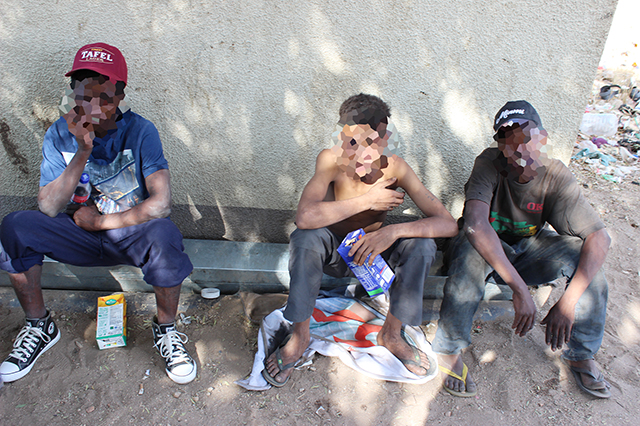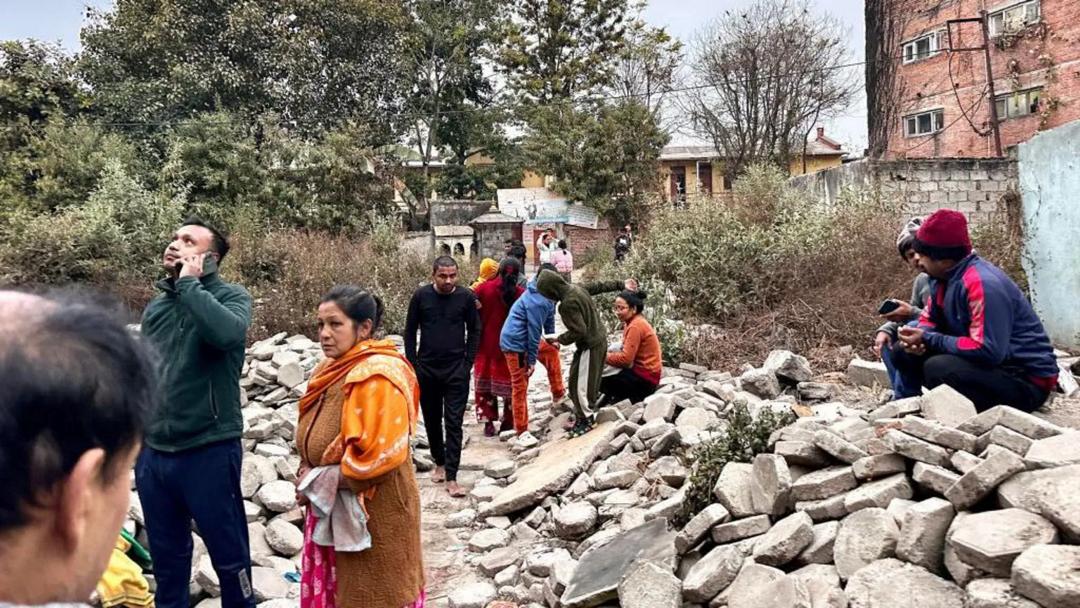The Namibian follows the lives of two street children as they speak of their addiction to petrol and other harmful substances.
OUTSIDE an abandoned house along Sam Nujoma Drive in Windhoek, a group of boys enjoy an unusual breakfast over loud laughter and conversation on a warm Friday morning.
Behind us, the traffic buzz along Sam Nujoma Drive and Robert Mugabe Avenue comes to life, as *Silas, a tiny 14-year-old boy, appeared to sip from a juice container, while his friend *Petrus sniffs from a milk carton.
We exchange greetings as we approach them. They recognise and welcome us after earning our trust from our encounter the day before. The boys are relaxed since the police, who sometimes harass them, are too preoccupied with an accident not too far away.
At first glance, there is nothing unusual with the boys enjoying their morning routine, but the overpowering smell of petrol is evident. We soon learn that Silas and his friends are sniffing petrol for breakfast, a cheap but deadly addiction to numb their sad existence.
Silas, who lives in this abandoned old building with 15 other boys and two adults, tells us that he cannot start his morning without this daily fix. To fill-up the container, Silas buys a carton of petrol for N$10 and a half carton for N$5 at a nearby service station.
Petrol attendants usually don’t ask questions, the boys say.
Since Silas has to share the petrol, the boys sometimes quarrel among themselves.
“I feel a bit better today,” Silas tells The Namibian as he takes another long sniff of the lethal liquid.
This was because the day before, Silas had been unconscious after another heavy dose of the petrol.
There is a sad look in his sunken eyes as he hangs his head in despair, and waits for the fuel to kick in and control his system.
His bare bony chest has a wound that is healing. One of the big boys had stabbed Silas after he had refused to share his drugs.
Silas’ medical passport from the Katutura Intermediate Hospital, seen by The Namibian, states that he was stabbed on the left side of the chest on 14 November. The doctors stitched the wound, and discharged him the same day.
One of Silas’ friends, *Ishmael (13) was struck with a rock behind his head when he refused to share his drugs. Ishmael shows us a bald patch at the back of his head where the rock hit him. It’s still painful and swollen.
“A fight over drugs, food or money can easily get you beaten or killed on these streets,” admits one of the older boys, adding that these kinds of fights are common.
Charles Visagie (35), who also lives at the abandoned house, tells us that Silas, who used to beg on the streets of Klein Windhoek, joined them after his brother, his only known relative, was sent to jail.
He joined Visagie and his group to get protection, instead of facing the street life alone.
“Silas has not been the same ever since his older brother was sent to jail some months back. He wants to forget everything,” Visagie says.
SMOKING TO NUMB THE PAIN
In this small community, smoking dagga and sniffing petrol is a coping mechanism, an escape from their harsh reality, many of them said.
Everyone here has a painful story to tell, says Visagie. Although their stories may differ, they are intertwined somehow. If you are not an orphan like Silas, then your parents have neglected you – it is one of those two scenarios, says Visagie.
“Don’t ask me how I ended up on the streets, it’s a painful story – I don’t want to talk about it. It brings tears to my eyes,” adds Visagie.
Like Silas, Visagie was just a child when he was lured to street life by some older boys years ago. His alcoholic parents had neglected him, he says. Most of the children here have fled their homes to run away from poverty or abuse by their parents or caregivers. The consensus here seems to be that the streets are better than a home of poverty and abuse.
“At least on the streets, we can beg for money and earn up to N$500 a day. We have the freedom to do what we want,” says *Patrick (17).
At the traffic lights on the streets of Windhoek, one of the boys can be spotted begging from motorists. Some motorists give him a few coins, others are repelled by his sight, while others do not give him a second glance.
“They often wear their dirtiest and filthiest clothes to attract sympathy, especially from tourists,” says an employee at the Ministry of Gender Equality and Child Welfare, who works with street children.
Under a bridge across the busy Grove Mall Shopping Centre in Kleine Kuppe, 17-year-old Caleb Kooper is getting dressed for another long day. He puts on his checked shirt and ties his sneakers while his three friends do the same. The alcove space under the bridge is limited in width and height, with each boy having his allotted sleeping spot with dirty, old blankets and old mattresses.
Kooper excuses himself as he faces the nearby bush and unzips his shorts to pee before turning his attention back to us. Unlike the boys along Sam Nujoma Drive, Kooper says they do not sniff petrol. They use a different coping mechanism. “We smoke high-grade marijuana. It is the healthier option,” he says as he starts praising the benefits of dagga.
“Did you know that dagga is an appetite booster?” he asks as if to justify his addiction.
Stay informed with The Namibian – your source for credible journalism. Get in-depth reporting and opinions for
only N$85 a month. Invest in journalism, invest in democracy –
Subscribe Now!








